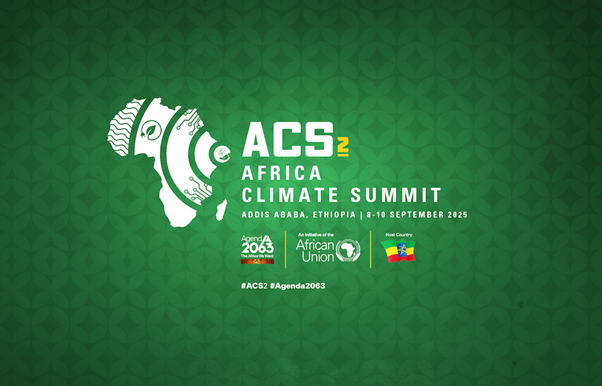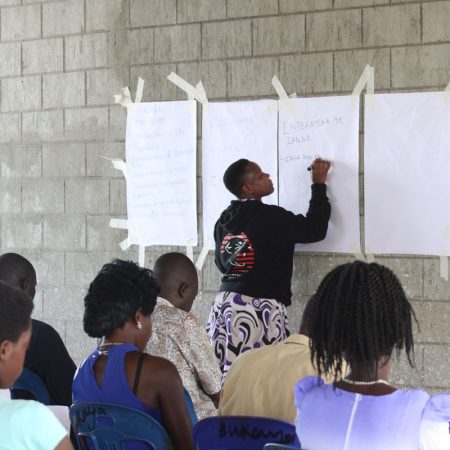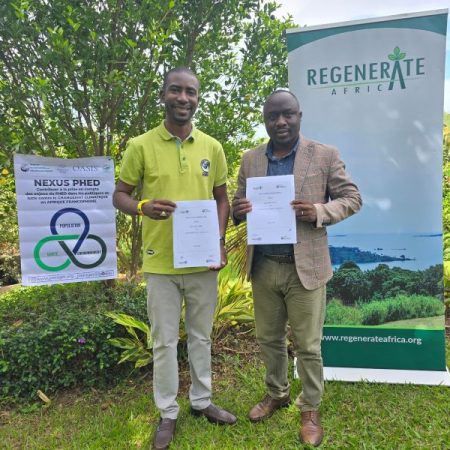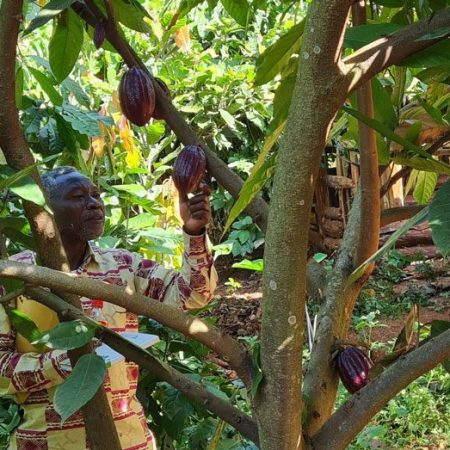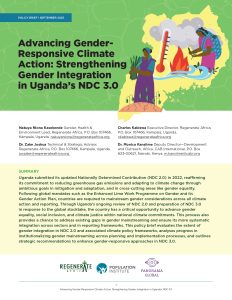
Uganda’s updated climate commitments present a crucial opportunity to move from gender awareness to gender-transformative action. This policy brief examines how Uganda’s Updated NDC (NDC 2.0) recognizes gender as a cross-cutting issue but stops short of operationalising measurable gender objectives, clear financing lines, and institutional accountability. Key findings show that while gender is acknowledged across mitigation and adaptation sectors, there are gaps in gender-disaggregated baselines, gender-responsive budgeting, and formal frameworks to track gender outcomes.
This brief recommends concrete steps for NDC 3.0, including:
• Introducing gender-specific targets and measurable indicators;
• Defining dedicated gender actions (e.g., climate-smart agriculture access, inclusive early-warning systems, and sexual and reproductive health integration);
• Institutionalising participation mechanisms to ensure women, youth and persons with disabilities are represented in planning and implementation;
• Creating a gender-responsive monitoring, evaluation and reporting framework; and
• Establishing clear budget lines and gender-responsive budgeting to fund grassroots women’s organisations and local actions.
The brief is grounded in analysis of Uganda’s Updated NDC (2022) and aligns with international guidance such as the Enhanced Lima Work Programme on Gender and the UNFCCC Gender Action Plan. For practitioners, policymakers and funders, it provides targeted recommendations to ensure NDC 3.0 delivers measurable, inclusive and accountable climate outcomes.
Click on link to access document.
https://regenerateafrica.org/wp-content/uploads/2025/10/PI-0127-Integration-of-Gender.pdf.


